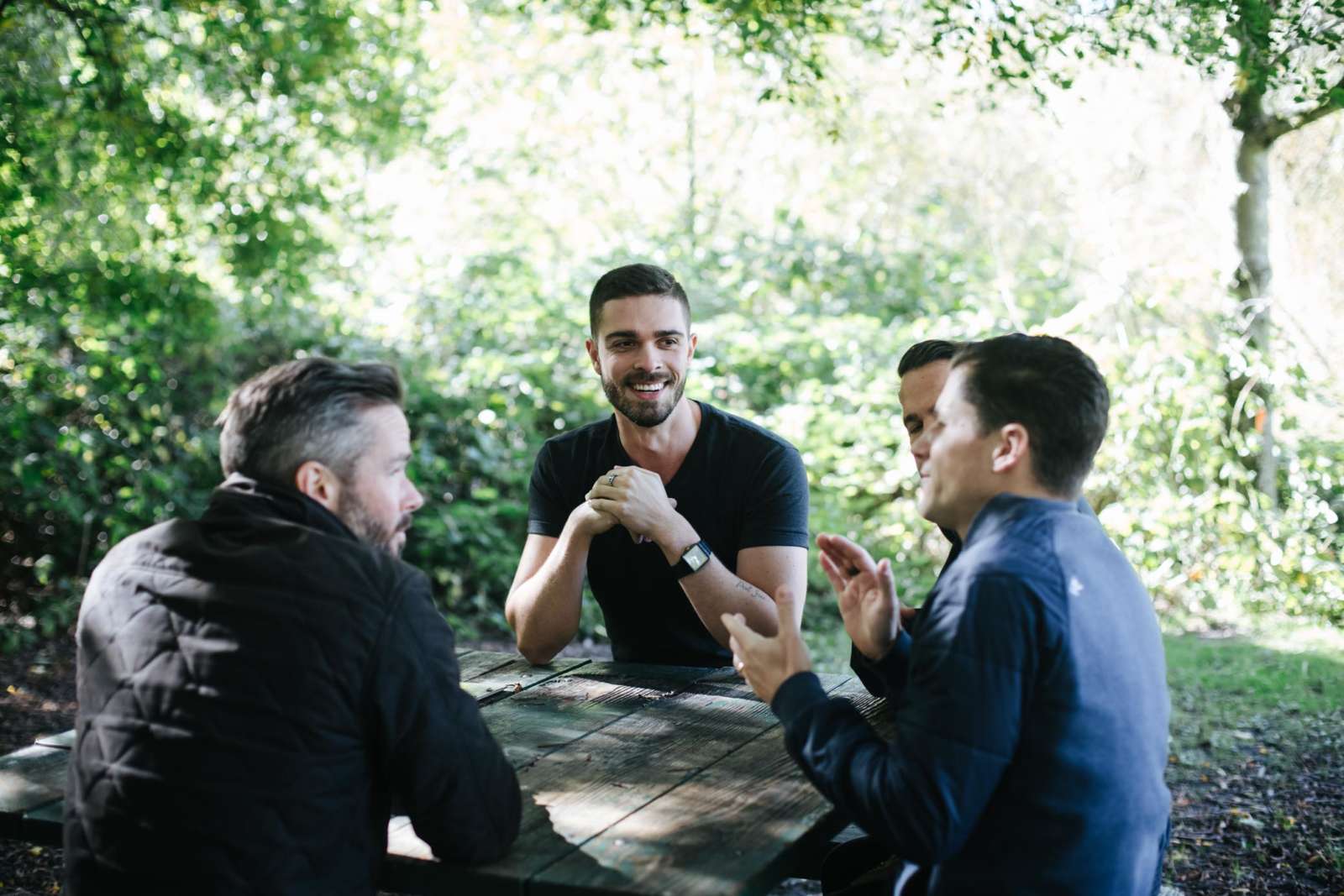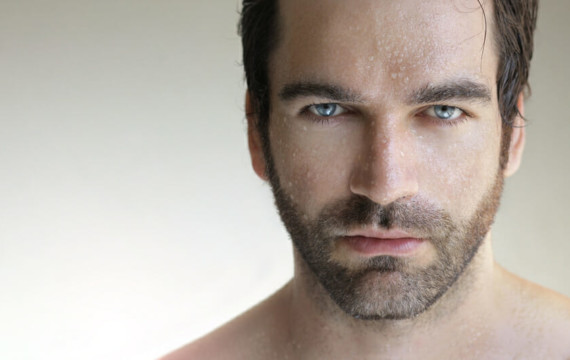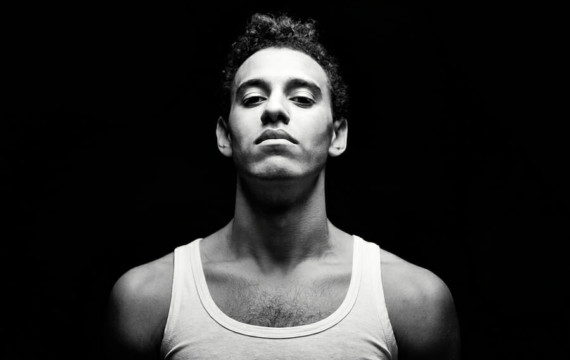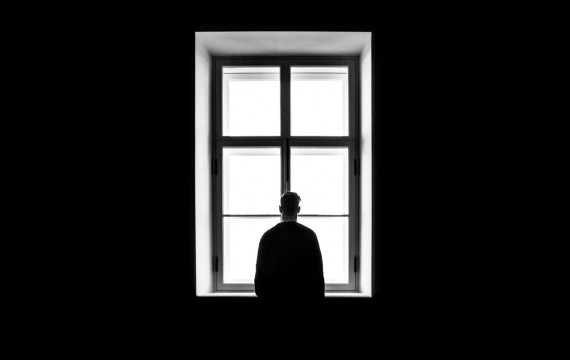There’s a lot of talk about how modern men are in crisis.
Statistics say they’re lagging socially, academically, and romantically. They’re drastically leading the numbers in suicide and violent crime. It also seems they’re getting a bad reputation among women in the dating world, stereotyped as acting either like timid children or classless douchebags.
Why is that? What are the reasons men are floundering these days? Well, I’ve heard and read many different opinions.
Some people want to blame “toxic masculinity”. Others say it’s the empty, fruitless careers we’ve been trained to chase. Or it’s a generational awakening to the purposeless, isolated, consumerist lifestyles we’ve been tricked into leading.
The list of theories run on. But I’m seeing another angle that isn’t being addressed in much of the public conversation on the matter. It’s something the mythopoetic men’s movement referred to as:
The Father wound.
This isn’t something you hear about every day. At this point, you would probably never hear about it outside of certain kinds of men’s groups (or my blogs). Which is a shame. Because it’s a wildly profound and accurate concept.
The basic idea is this: Unless a man’s upbringing was perfectly idyllic, and his father figure didn’t have a single shortcoming or flawed moment, he doesn’t escape childhood without forming a deep psychological and emotional wound with the Father.
I’m not referring solely to his biological dad (though he would certainly be a huge factor.) Any negative experiences with older males can contribute to this wound, be it with teachers, elder brothers/uncles/grandfathers, or authority figures. Anytime a boy feels abandoned, betrayed, invalidated, neglected, put down, or rejected by a father figure, his wound grows. If his male peers had deceived or ostracized him, further bruising was left behind.
Now, if we were sitting in some mythopoetic group together, this might be the point where a deer-skin drum begins thumping in the background while we take turns “bearing our wounds”, or sharing about times where our masculinity felt injured by particular life experiences…
But I’ll leave you to think about that for later.
The Father’s Role of Initiator
A wound develops with the “Father” because he’s supposed to play a critical role in a man’s life. The Father is supposed to provide initiation into manhood. And when a boy doesn’t get that role fulfilled in his life, he may feel himself shrink, become passive, and carry a background belief that he’s “not enough”. Or he may harbour deep, active resentment toward representations of the Father archetype, like government, bosses, teachers, etc. (aka. authority issues) and moving through life stuck in the “reaction-formation” phase of maturity.
In either case, the boy grows up perpetually compensating for this pervasive fundamental feeling of not belonging, being a man or being totally accepted. This may drive one man to sit around and struggle with depression and addiction, while it could drive another to become a success-obsessed womanizer. In either case, he’s living at the affect of his wound with the Father.
Many men are raised without fathers. And even when they do have one, they’re often emotionally absent, or distant. In our communities, there is rarely any presence of male mentors for young men to spend time with. In the media, the current general attitudes lean toward demonizing or “taking down” paternal energy. You could say this all amounts to a distinct lack of “father energy” in the world.
Without having a trustable father figure (or figures, plural) to initiate a man into the world of healthy men, he isn’t able to reach full psychological and emotional maturity.
Given the current societal circumstances, millions upon millions of men are falling into this category. And it has very distinct effects on their lives.
The Impacts of the Father Wound
You can see this wound at work in a man’s life as if it were a unique disease, with its own fingerprint. At the heart of it, you will see issues with power, success, intimacy, trust, and confidence.
Some common symptoms of the Father wound are:
- The inability (or lack of desire, or refusal) to thrive
- Chronic depression and anxiety
- Excessive laziness and procrastination
- Ongoing struggles with addictions/compulsions (sex, porn, work, drugs, alcohol, etc.)
- Inability (or lack of desire) to trust men, and feeling like no one truly has your back
- Being highly isolated
- Issues with authority (mistrust, resentment, paranoia, conspiratorial thinking)
- A pervasive sense of shame (not being good enough) about your existence
- Being highly reactive to criticism (especially from male peers/male elders)
In that short list, nearly every modern guy will be able to recognize significant parts of himself. Particularly in struggles with a lack of drive, battling bouts of depression, being addicted to porn, and feeling isolated.
An unhealed father wound creates these kinds of men – who are weak in their masculine core. By that I simply mean guys who don’t have a sense of centre, strength, intuition, and direction.
With the father wound in place, many men chronically fail to thrive because some part of them wants their pain, struggle, and turmoil to be noticed (and rescued) by the father, while other men subconsciously choose to struggle as a misdirected way of punishing their fathers (i.e. “I’m a fuck up because of YOU! Look at what your shitty/absent parenting did!”)
This kind of man doesn’t live with an orienting purpose to his life. This is part of the reason why men’s groups are beginning to thrive. Consciously and unconsciously, men are starving for intentional community and initiation. This is the same reason why fraternity hazing, gang activity, and army enrolment are also thriving. Guys want to feel part of something bigger, where other men are coming together in private.
When there are no healthy forums for proper initiation, men will seek a facsimile of initiation via these other methods.
Healthy initiation redirects a boy’s life path. Men from fatherless homes are statistically more likely to commit suicide, become teenage parents, go to jail, and commit sexual assault. And with over 25% of boys coming from fatherless homes (not counting those with present but absent-hearted fathers) I would say that fatherlessness (and the resulting Father wound) is a massive epidemic.
So, what can you do?
If you’re seeing yourself at all in the above description, and you want to do something about it, consider taking on each of the following four points. These are the chief avenues to healing the Father wound, which I’ve packed down from thousands of hours reading, getting mentored, and running men’s groups.
This is vital, life changing work. But it’s not a weekend fix. You’re about to face into lifelong psychological dynamics and deeply buried emotions. As Carl Jung once said, “There is no coming to consciousness without pain.”
Once you unearth them, it takes months to cement new behaviours and change your brain. It’s a big process. And as you’ll see, I don’t recommend you try to do it all alone.
Healing The Father Wound
1. Engage deeply in some form of therapy
There’s a great saying: “The only way out is through.” In this case, it means that you can’t leap frog your emotional baggage on the path of personal evolution. You have to express and purge it first. Only then can you cement new growth.
Whatever feelings of rage, entitlement, sadness, or pain you might be carrying around your father and other men, they will only limit your life until they are released and understood. That’s why they call it “baggage” because it weighs you down and holds you back.
Everyone has baggage. That’s why everyone needs therapy. That said, it doesn’t all necessarily have to be with a therapist. Journaling is therapy. Confiding in a trusted friend is therapy. Anything where you’re revealing, exploring, or healing your emotions and thoughts is technically therapeutic.
However, if you have the means to do so, I highly recommend seeing a proper therapist. Because while those tools are helpful, there are just some depths you can’t get to without help. Having a skilled outside perspective is MASSIVE for developing a greater understanding about yourself, and seeing things you otherwise simply wouldn’t.
Consider the fact that you’re operating from inside of your emotional blockages. They cause patterns to unfold in your life that you can’t see because they’re sitting in your blind spot. You can poke at them on your own, but a therapist can coach you right into those knots and help you unravel them. This frees up a ton of energy that used to be locked up in repression.
No matter which route you go first, you’ll need to express your anger fully and let your inner child speak its truth. Some of this you can do through journaling and confiding in a trusted, non-judgmental friend. Again, a therapist is ideal, but start where you can.
When a lot of men talk about their fathers, they tend to skip over diving into the harder times and get right to the logical line of: “But you know, he did his best.”
Yes, this is the conclusion you ultimately want to end up with. But only after you’ve done the work around it.
In the world of therapy, we’re not interested in your logical conclusions. What we want is to give your inner child the right to finally FEEL things – no matter how bratty and irrational they might seem to your adult, rational brain. You can’t think your way around those emotions and invalidate them. Because, guess what? They’re still there. And they’re having a real-time, negative affect on you.
If your father figure was completely absent and a total fuck-up, you might say: “Well, what can you do? I’m not going to waste a moment of my time feeling bad or thinking about that asshole. I’m not going to give him that energy.”
Again, this is a nice logical way to bypass the emotions. It seems “grown up” on the surface. Why fight or dwell on things you can’t change, right? But if you have never addressed all those earlier feelings around the wounding created by your father at the time, saying something like that is only serving as avoidance. If you look at it again, you see the covert hurt and anger behind that sentence.
As children, we didn’t have the right tools to express all of our darker, harder feelings. We often didn’t know how. If we did, our parents would usually shut us down, or overpower us. There is no room for the child to assert itself. Especially when it feels like its parents are failing them, or mistreating them.
Though decades might have passed, we can still reach back in time and process these unexpressed emotions. We can say all the things we never had a chance to. We can unleash the anger, or release the tears. And, yes, some of these feelings are just a story you’ve cumulatively built up in your mind. But that doesn’t make them any less real in your body. After emotional catharsis, you’ll be able to see everything so much more clearly.
Truly stepping into the emotions is crucial. By that I mean actually embodying them and acting them out. It helps to journal and discover the truth of any given situation. But physically moving that energy through the body is cathartic in ways that writing can never be.
Again, there are so many reasons why you should find an aligned therapist for this work, or join a reputable deep-dive workshop. Your experience and integration process will be much deeper. But if you’re going to do some of this work on your own, try following this advice while holding specific people (ie. your father) and moments in mind.
Give yourself permission to let go. Allow yourself to be irrational. Because the part of the rationality you’ve developed is just a castle wall to defend against having to face certain emotions and let them in.
Making another million dollars won’t heal the wound. Sleeping with another dozen women won’t heal the wound. Working out every day and building up 20 inch arms won’t heal the wound. Only leaning into the pain and allowing yourself to feel it, and letting it move through you, will heal the wound.
Express all the disappointment, frustration, and anger you’ve been holding on to around your father and older men. These are some of your biggest blocks to gaining success and power. Once you do this heavy lifting, big shifts will start trickling into your life.
2. See your father as innocent

This is not an easy one for a man to do, especially if his father was abusive in any way. The point here is to do forgiveness work around the idea of the Father in your mind. Because without forgiveness we are all a slave to our pasts.
From within our own stories, it seems like people are doing things TO us. That is especially the case when we’re very young. We’re at the centre of the entire experience. We feel the hard feelings, and we take it all personally.
So, your father’s negligence, shortcomings, or absences, are taken to mean something bad about either you or him.
“I wasn’t worth sticking around for.”
“My parents divorced because of me.
“If I wasn’t such a nuisance/burden/pest, then he wouldn’t have needed to hit me so much.”
All this stuff creates very real collateral damage at the individual level. But now, as an adult, you have to be able to step out of yourself and see it all from the third person. You have to be able to study him as if he were a character in a play, or a Shakespearean tragedy.
When you remove yourself and all your hard feelings from the equation…
Can you see that your father was doing the best he could, given his upbringing, life experience, and circumstances?
And if he was an abusive alcoholic, you might have a hard time thinking he did his “best”. But really consider that. To think of it another way…
Can you have compassion for him? Can you step outside of the memories and see them objectively?
For example, if he would come into your room some nights and take his frustration out on you with his fists, or his belt…
Can you see the tragedy in his character? Can you see how sad and horrible of a situation he was creating?
Can you see how much he was suffering and hurting deep down?
Can you imagine how much pain a person needs to be in in order to feel like they need to take it out on a small, defenceless, child?
Can you see what happened in his early life that made him behave this way?
Can you remember that, at some point, he was a happy, innocent kid, who ended up becoming a tortured, self-loathing, violent soul?
This is NOT about absolving him of responsibility for doing terrible things. It’s about releasing any personal charge around him in your mind, and transforming how you perceive him. It’s about adding an element of humanity and understanding into your psyche.
Some people treat forgiveness as simply shutting up about an issue and trying to let it lie in the past, so they don’t have to address it anymore. But that’s avoidance, or a stubborn attachment to victimhood, not forgiveness.
To forgive is to understand and empathize with the other. To understand is to have compassion. You want to be able to let go of these feelings and forgive him as the result of arriving at profound insights.
You don’t have to do this all in one day. As a mentor of mine says: At first, regardless of whether or not you can feel forgiveness, all you have to do is be willing to forgive. And that’s good enough.
3. Re-parent yourself
At some point, each person needs to cover the gaps and carry the torch that their parents couldn’t. Now, you can be the father to your inner child that you never had.
There are two re-parenting exercises you could do on your own to get started.
The first is writing a letter to your younger self.
Set yourself up with a private evening where you won’t be interrupted, and you can dedicate yourself to some emotional excavation. This isn’t something you want to do before heading out anywhere or being active. Plan to stay in for the night.
First, set the tone. Do whatever rituals you need to do to create a sense of seriousness, sacredness, and intention. For some, that could be as simple as dim lighting. Others might choose to play certain music, light candles, do breath work, or just be still for a while.
Begin by taking a few moments to meditate and imagine your 5-year old self. Try picking a specific memory and imagine yourself standing in the room, as your adult self, watching it all play out.
Watch that kid. Watch him run, giggle, shout, cry, and stumble. Sense the needs and wounds in him. What made him happy? What made him sad? What was he looking for? What didn’t he get?
Then, for as long as you can, using a pen and paper, write a letter to that kid as if you were its mentor.
Send him your love. Tell him you’ll always protect him. Tell him what you want him to know for the years ahead. Speak to the core pieces of his psychology that he won’t be able to see for years to come. Take this opportunity to give yourself all the things you felt you never got from your caregivers. Give yourself all the love, validation, recognition, approval, and encouragement you might have missed.
Don’t be surprised if tears well up throughout this process. I’ve broken into full on sobbing. It’s absolutely natural, and a great indicator that you’re nailing the practice. These are waves of unseen grief that have been trapped for years. Let it all come, and keep on going.
By the end, if you had some emotional shockwaves and releases, be gentle with yourself. You’ve just been playing with healing very young parts of your mind. Nurture yourself as though you would a 5-year old. Swaddle yourself in a blanket, make a snack, have a hot chocolate, journal, and reflect.
Route number two is through an exercise in gestalt therapy, which involves a bit of imagination and role play.
Again, make sure you have dedicated, private time, and set yourself up to get into a sacred mindset. Then, in a safe place, place two chairs facing each other, a few feet apart. One chair is for you. The other will be for your younger self.
As with the journaling, begin with a few minutes of meditation, where you step into a memory and see your 5-year old self in action. Make those same observations about his needs and drives. Feel into his emotional reality.
Then, imagine him running into your arms for a long embrace. When it feels right, place him on the chair across from you, and begin the same process of dialogue as you would with the journaling, but speak it directly to him. What would you say to that kid if he was your own? What do you want him to know? What do you see in him? What do you want to give him that you know he never got?
The emotional releases that can come from these exercises are very unexpected. But if and when they come, follow those notes above about being gentle and nurturing with yourself.
Just like with any kid, as time carries on, your inner child doesn’t go anywhere. Parenting is a lifelong commitment.
In daily life, you will have moments of anxiety where you might worry about looking stupid, or failing, or not being accepted. You can now recognize that these are all whispers from the tiny, scared voice of the younger you. These are opportunities for you to step in as a functional adult and remind him, “Hey, I know you’re scared. But I got this. I got you. No matter what happens, we’re going to be okay.”
This internal relationship is one that is very easy for us to ignore. But once you reconnect at this level, profound healing and change will begin happening in your life.
4. Invest in your friendships with other men

The final way to healing your Father wound and relationship with the masculine is through close ties with other men. You can do therapy to no end. But unless you actively engage in honest, meaningful interactions with other men in your life, you can’t fully cross the bridge into manhood and complete this process.
Reach out and extend to the men in your life. Make sure you have at least a few meetups a week where you can spend quality time with them. When you’re together, connect on a deeper level, where you can. Physical company is great, but it’s emotional intimacy that you are really looking for. Go deeper than having drinks and bullshitting about sports, women, or social media activity.
How are you really doing? What are you moving toward in your life? What are the blocks standing in the way? What are you struggling with? What are you afraid to admit to others and yourself? What are your fears?
This might make for super awkward bar and party conversation for most people. We’re trained to avoid these vulnerable areas and buffer against ever looking at them. You’re going to need men who are willing, and who you can trust.
That’s why I recommend joining a men’s group, if you can. When it comes to personal development and therapy, I’ve done more things, read more books, taken more trainings, and worked with more coaches than I can remember. And being in a weekly men’s group has easily been one of the most powerful and transformative tools that I have engaged with.
The container of safety and willingness is already there for you. Everyone is eager to dive in and open up about where they’re at.
It just so happens to be the ideal remedy to treat all the issues created by the Father wound. You can combat isolation. You can get support with your addictions. You can open up about your traumas, and hardships. You can be pushed to build something and move forward with your life.
As someone who identifies as an introvert – spending tons of time creative writing, doing self-care, and dreading large social events – isolation happens naturally for me. When left to my own devices, I can be a bit of a hermit.
I needed a guaranteed touch-stone in my week where I’ll get high-quality time with men. Otherwise, it’s so easy for me to be off in my own world and not even think to extend to people regularly. A weekly group meeting was the perfect solution.
Along the way, I opened up about things I’d never talked about before, like struggles with sex addiction, being suicidal in the past, and so many parts of my mind that I had usually hid away. I also had the chance to support other guys doing the same.
I began to feel deeply part of a community like I never had before; like I was on the inside of something special. I felt like these guys had my back through anything, and I knew that I had theirs. This feeling is the indescribable thing that starts to transform you in ways you aren’t even aware of.
It changes the way you think, and the way you feel. It heals and feeds you in ways you can’t understand. You become stronger in every way.
That – right there – is the power of initiation. That is what it feels like to heal the Father wound.
Guys notice that they start to speak with fire and passion like never before. They discover their voice and values as a person. Their self-esteem skyrockets. Their financial situation improves. Their love life turns around. They feel like they actually matter. They feel taller and more grounded.
They feel like men.
Your Next Steps & Moving Forward
What I want you to know is that, however you’re struggling, there are men all over the world who are feeling the same, if not worse. You are far from alone.
If you came to read this, and especially if you read it through all the way until now, some deeper part of you recognizes a truth in it. And this is where it all starts – with recognition.
From here, the path to healing your Father wound is going to wind through some dark and unpredictable terrain. It might not move as fast as you want it to. But as you explore, you’ll keep uncovering the next chunk of truth, or exhilarating insight, which you can use to keep yourself motivated to move forward.
Healing happens on its own schedule, with surprising results. There’s no telling where you’ll end up, who you will be, or when you’ll have your breakthroughs along the way. But if you engage with these four courses of action – especially the last one – it will happen in due time.
Above all, walk this path with other good-hearted, caring (of which there are many, if you are truly open to finding them) men, and you’ll arrive at your destination.
Dedicated to your success,
Jordan
Ps. If you enjoyed this article, you will also love checking out:
– Wanted: Strong Men For Soft Times
– How I Learned To Have Male Friends








